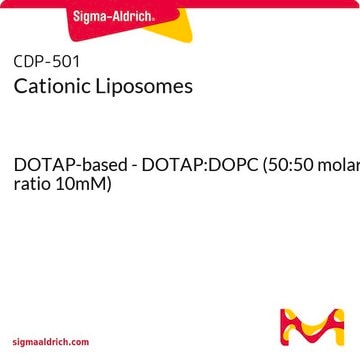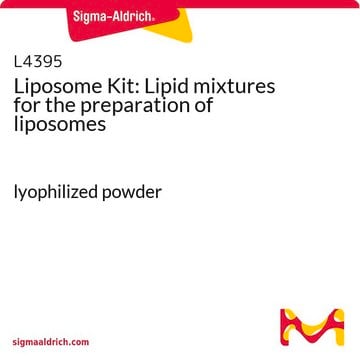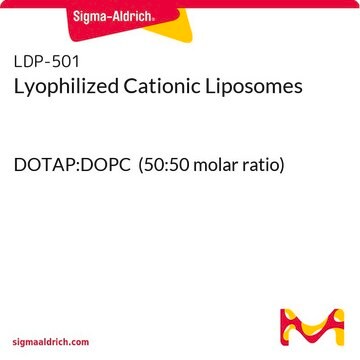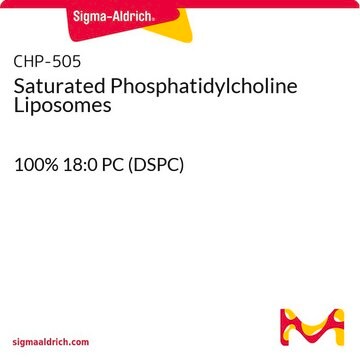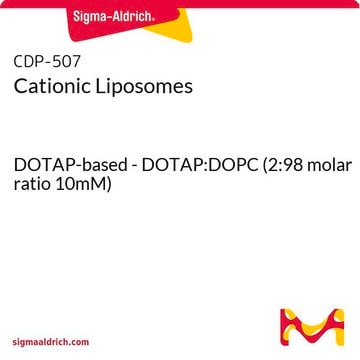CAR-201
Cardiolipin Liposomes
100% Cardiolipin (CL) (10mM)
About This Item
Produits recommandés
Niveau de qualité
Composition
Phosphate buffered saline
Concentration
10 mM
Impuretés
100 mol % Cardiolipin
Taille des particules
100 nm
pH
7.4
Vous recherchez des produits similaires ? Visite Guide de comparaison des produits
Description générale
Cardiolipin (CL) is a unique phospholipid with an interesting chemical and ultrastructural characteristics. It is a highly acidic dimer of phosphatidylglycerol (PG) and phosphatidic acid (PA) containing four acyl chains, three glycerols and two phosphate headgroups. Due to deprotonation of one of these phosphate groups, cardiolipin is negatively charged in physiological pH.
Cardiolipin (CL) is known as a mitochondria-specific phospholipid and is intimately linked to mitochondrial bioenergetic processes. It plays a functional role in mitochondrial membrane stability and dynamics, as it interacts with a number of inner mitochondrial membrane metabolite carriers, enzymes and proteins. Extensive studies of phamacological, toxicological, and therapeutic effects have shown that the incorporation of doxorubicin in cardiolipin liposomes improved antitumor activity. It has been reported that cardiolipin-containing liposomes have lower cardiotoxicity associated with doxorubicin by alteriing the pharmacokinetics and tissue distribution of the drug.
Cardiolipin is a negatively charged lipid and provides two types of binding possibilities: binding at the surface and encapsulation deep within the membrane. Our catalog of cardiolipin lipids contains many different types of saturated and unsaturated cardiolipin based liposomes made from 0.5% up to 100% cardiolipin.
Application
Lipid-protein interactions
Stockage et stabilité
Liposomes are made under sterile conditions. If you need to take multiple aliquots out of the vial, it is advised to take extreme care in not contaminating the vial. It is recommended to handle the vial under a sterile hood to maintain the sterility of the product. Liposomes should never be frozen. Ice crystals that form during freezing will rupture the lipid membrane of the liposomes and change the size of liposomes particles.
Informations légales
Clause de non-responsabilité
Code de la classe de stockage
12 - Non Combustible Liquids
Classe de danger pour l'eau (WGK)
WGK 2
Point d'éclair (°F)
Not applicable
Point d'éclair (°C)
Not applicable
Faites votre choix parmi les versions les plus récentes :
Certificats d'analyse (COA)
Désolés, nous n'avons pas de COA pour ce produit disponible en ligne pour le moment.
Si vous avez besoin d'assistance, veuillez contacter Service Clients
Déjà en possession de ce produit ?
Retrouvez la documentation relative aux produits que vous avez récemment achetés dans la Bibliothèque de documents.
Notre équipe de scientifiques dispose d'une expérience dans tous les secteurs de la recherche, notamment en sciences de la vie, science des matériaux, synthèse chimique, chromatographie, analyse et dans de nombreux autres domaines..
Contacter notre Service technique